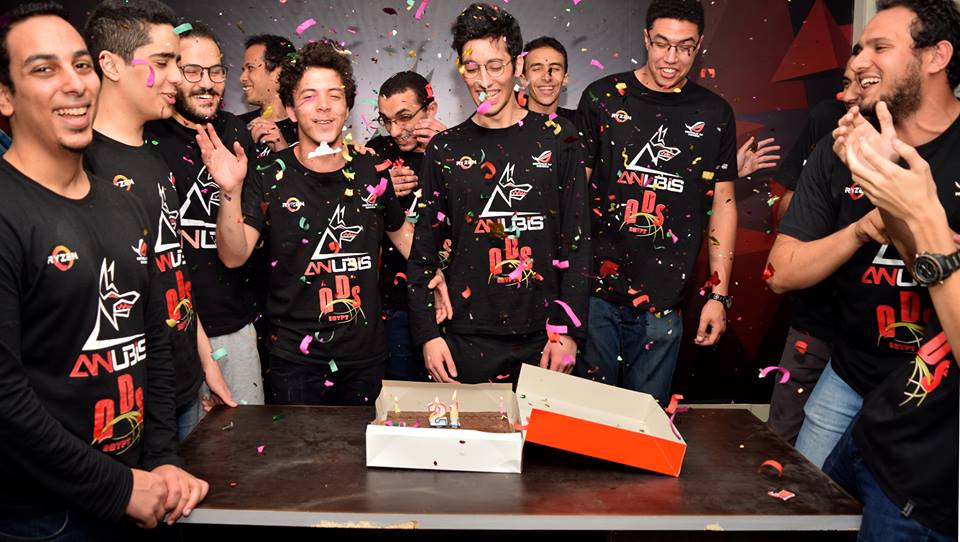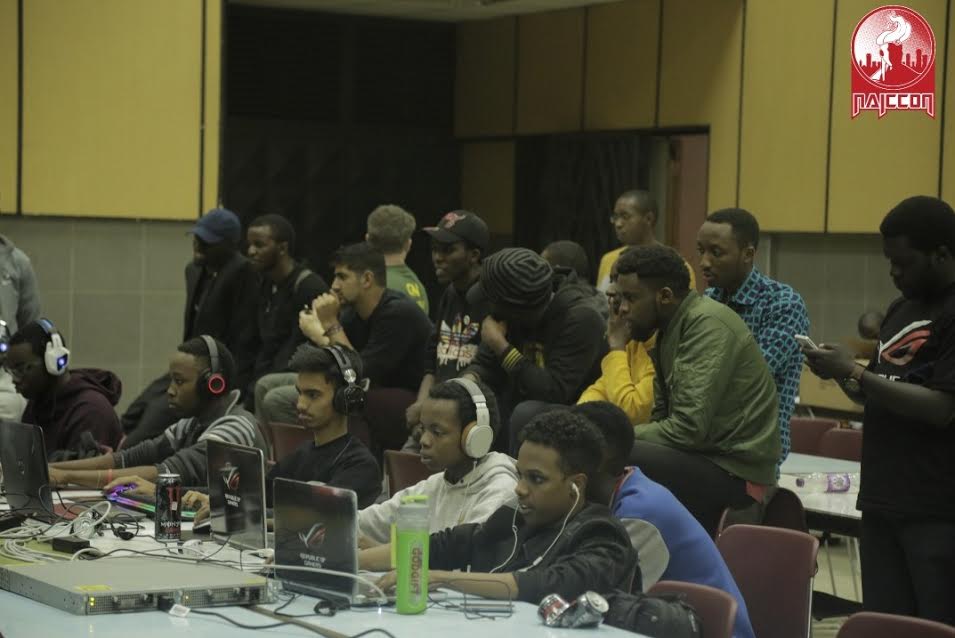African Esports Are Ready to Explode, but Video Game Publishers Are Holding Them Back
Credit to Author: Emanuel Maiberg| Date: Wed, 30 Aug 2017 16:52:56 +0000
All Youssef Mohsen wanted was to see his players compete in international tournaments, but after winning a dozen esports competitions in Africa and the Middle East he learned he was effectively barred from the global scene.
“We wanted to join global tournaments but we couldn’t because you have to have a server in your region,” Mohsen said in a phone interview from Anubis Gaming’s office in Cairo, Egypt. “The only problem we’ve faced is that there is no support from the publishers.”
In August, gaming giant Valve offered up a record breaking $24,687,919 prize pool at The International 2017, its annual Dota 2 tournament, and in September the world’s best Overwatch players will face off in Blizzard’s blockbuster first-person-shooter during the company’s annual BlizzCon convention.
Both competitions include a mix of national and international teams, but African nations and players are noticeably absent from participant lists. That’s not for a lack of skill or effort, but because the entire continent is essentially disqualified from international tournaments due to a lack of game-specific servers, typically run by major game publishers like Activision Blizzard, Valve, and Riot Games, the company behind the extremely popular League of Legends.
Until these companies are willing to invest in Africa, the continent represents a massive untapped pool of esports talent that will stop at nothing to play on an international level. Instead of waiting around, esports entrepreneurs in the region are racing to build up their own teams, leagues, and tournaments. But they’d just as happily give it all up for a little support from the companies behind their favorite games.

For the past two-and-a-half years, Mohsen has been leading the push to bring professional esports to Africa. As the founder and general manager of Anubis Gaming, he’s worked to build an esports company that can train players, show them how to create their own teams, and even organize tournaments.
But his original plans were much smaller in scope. He only set out to build an entire esports industry from the ground up after realizing that video game publishers weren’t ready or willing to support African players and team.
“My only choice is to build a league to back all the teams,” Mohsen said. “It might be unethical since I have my own team, but I don’t care because I want this to happen.”
Until things change, Mohsen doesn’t have much of a choice.
It’s a vicious circle, with no clear solution in sight. The issue comes down to what’s known as ping, meaning the download and uploads speed for online games that determines how fast your gaming console or computer responds to a command. Until Africa and the Middle East get their own servers to improve ping, teams in this part of the world won’t be able to qualify for international esports tournaments—African players could theoretically compete through servers in Europe or Asia, but the delay caused by that distance makes it impossible to play competitively. And until people like Mohsen can prove that there’s already a built-in esports market, major publishers won’t commit to building the servers required to be competitive internationally.
There are other ways around the issue. White Rabbit Gaming, an esports organization based in South Africa, actually made it into a qualifying round with the top 32 teams for The International 2017 despite “terrible ping,” according to company founder Alwyn Venter. Next year, White Rabbit plans to send its players overseas so they can compete on the same level as everyone else.
“We have to build the entire industry from the ground.”
Venter realizes that these aren’t sustainable solutions to Africa’s esports problem, but he’s hopeful that, with enough encouragement, big game publishers will eventually offer their support.
“Local servers will obviously help but we don’t know if that will happen,” he said in a phone call.
White Rabbit still puts a big emphasis on winning competitions, but Venter is also hard at work building an esports industry in Africa. Over the summer, he met with other esports organizations across the continent to transform their informal network of tournaments into a formal league.
His goal is to organize the entire region and create a centralized calendar, instead of the patchwork of overlapping events. If he succeeds, African esports may find a way to move forward without the industry’s support.
“Some companies are seeing a return,” he said, “but without sustainable infrastructure it’s not going to work.”
Read more: The ‘League of Legends’ Internet Works! Just Don’t Ask About Net Neutrality
Mohsen seems less willing to wait it out, and he wasn’t afraid to speak out against the companies that he believes are actively stifling the esports industry in Africa and the Middle East.
“There’s no one that wants to invest their time and money as we do in the sector,” Mohsen said. “We have to build the entire industry from the ground.”
Motherboard reached out to Valve, Riot, Activision, and Blizzard for comment. A Riot representative pointed to two online posts detailing why it still doesn’t offer servers in Africa, (where plans for a South African server were scrapped because the gaming population was too small) and the Middle East (where a single server location wouldn’t be enough to support the entire region) but declined to comment further. Valve, Activision, and Blizzard didn’t respond to our request for comment.
“By and large, Africa has really been ignored in terms of esports,” Brian Basara, co-founder of Nairobi Comic Con said in a WhatsApp call.
Naiccon, which holds a yearly convention in the Kenyan capital to celebrate African comics, animation, and gaming, also organized its first esports tournament at the 2017 event. The Call of Duty competition took place in Nairobi but used private servers based in Uganda, something that wouldn’t have been possible just a few years ago and showcases how Africa can support an esports scene of its own.

Basara plans to hold multiple competitions throughout the year leading up to the main event at Naiccon next August.
“We want to grow consistency and make some noise so the international games community notices it,” he said. “Hopefully we will be able to prove that gaming and esports are growing here. In my opinion that’s the main reason that they haven’t really looked at us as a region for gaming.”
Anubis gaming has taken a similar approach, shifting away from a focus on winning competitions and toward building up an entire esports structure in Africa. Mohsen is organizing a tournament in November at Cairo ICT, one of the biggest technology conferences in the Middle East and Africa, with a mix of first-person shooters, fighting games, sports games, and a multiplayer online battle arena (like Dota 2 or League of Legends). In August, he managed to convince a traditional local bank to sponsor his company.
It wasn’t easy. The bank apparently referred to Anubis as “Atari,” the legendary gaming company, and wasn’t clear on the definition of a PC. But Mohsen was able to prove that the sponsorship made financial sense and meant direct access to a generation of young gamers who might not even have bank accounts.
“If you told me that a year ago, I’d say that was impossible,” he said.
Beyond the financial possibilities of esports, Mohsen sees it as a force for good in Africa and the Middle East. He says that most of the players he works with “hated their lives” and played as many as 14 hours of video games per day before joining Anubis.
Now, he says, they’ve all become fluent in English and have social lives and girlfriends. One Anubis graduate even went on to start his own esports team, convincing a local internet cafe to sponsor him and provide the necessary hardware.
“Even though we’re losing a lot of money, we’re so proud that we’re part of the life change for these 20 or 30 people,” Mohsen said.
Mohsen still sees plenty of roadblocks ahead, from parents who don’t understand how video games can be a career to the perception of Africa and the Middle East as being violent and unsafe. Major gaming publishers have told him it’s too dangerous to expand into the region, and in the past, when Riot representatives did visit Egypt, they declined to meet with Anubis players.
Despite everything, Mohsen is optimistic. He firmly believes that the Middle East and Africa will get support from at least one major game publisher in the next year. In the meantime, he’s willing to do whatever it takes to make esports succeed in the region, even if that means carrying the entire industry on his back.
If people like Venter, Basara, and Mohsen can somehow build up a thriving esports league in Africa it could mean the end of companies like White Rabbit and Anubis. Mohsen fully expects publishers like Blizzard and Riot to step in to provide structure for teams and tournaments if he ever succeeds and actually starts making money. Surprisingly, he says he’d accept being elbowed out of the industry he helped build up from nothing.
“Even though I’ve been working like a mad man for the past 6 months,” he said, “I wouldn’t even be upset if they came in and took everything I worked for.”
Get six of our favorite Motherboard stories every day by signing up for our newsletter.